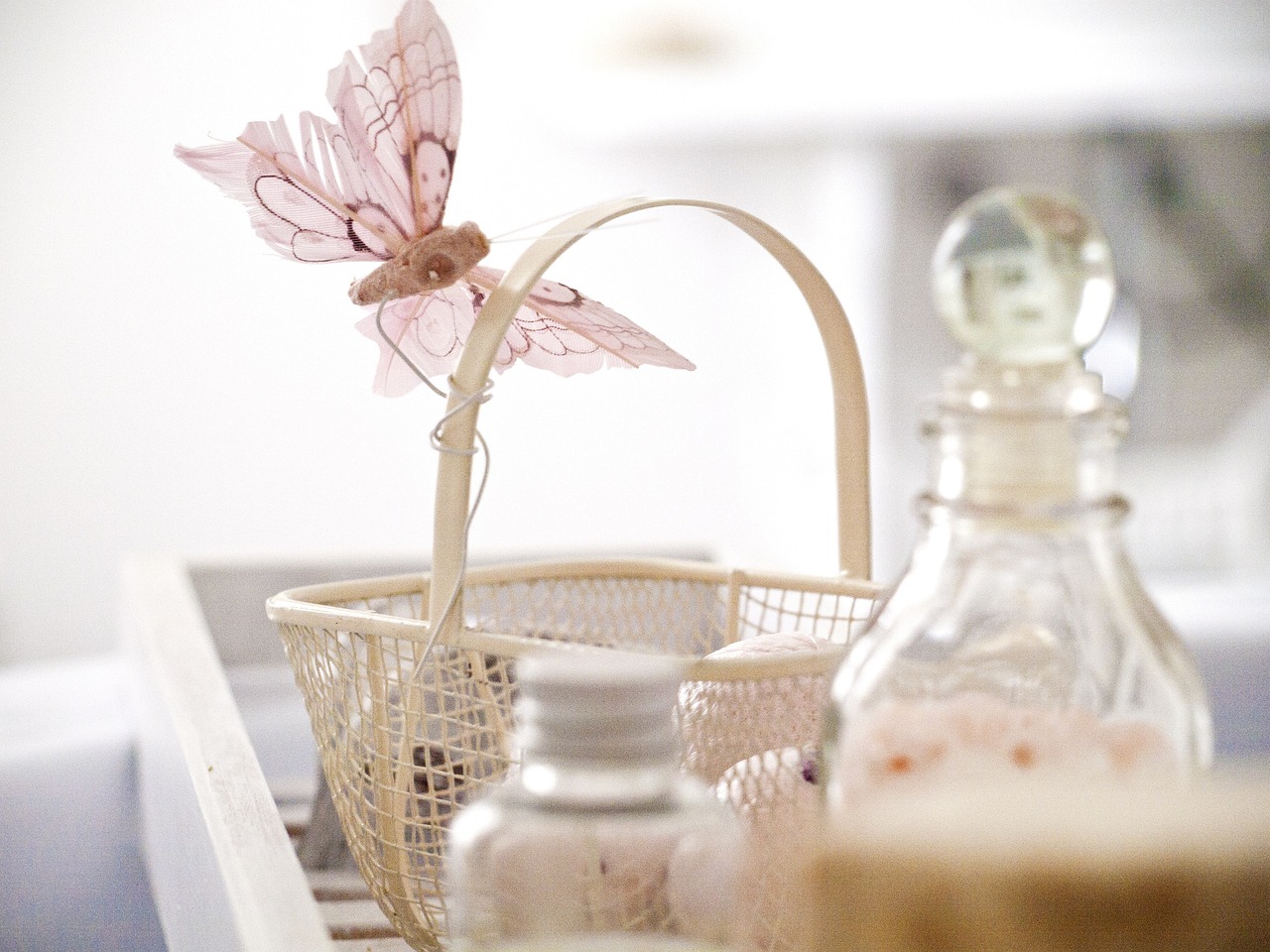Herbs for Lymphatic Drainage
The lymphatic system is a crucial part of the immune system responsible for removing toxins, waste, and other unwanted materials from the body. When the lymphatic system is not functioning properly, it can lead to a buildup of toxins and fluid retention, resulting in swelling and inflammation. Fortunately, there are many herbs for lymphatic drainage that can help promote and improve overall health.
Disclaimer: This article is provided for informational purposes only and should not replace professional medical advice. Please consult with a qualified healthcare practitioner or herbalist before using any herbal remedies.

Red clover is one of the most popular herbs for lymphatic drainage. Its gentle yet effective action makes it an excellent herb for maintaining a healthy lymph system, supporting immune function, and promoting overall well-being. Calendula is another herb that is highly recommended for promoting lymphatic drainage. It contains bitter compounds and antioxidants that stimulate detoxification and help to decongest the lymph network.
Other herbs that are known to support the lymphatic system include burdock root, cleavers, echinacea, astragalus, goldenseal, poke root, dandelion, and wolf’s foot clubmoss. These herbs have been used for centuries to promote lymphatic drainage and improve immune function. By incorporating these herbs into your diet or taking them as supplements, you can help support your lymphatic system and promote overall health and well-being.
Understanding the Lymphatic System
The lymphatic system is an essential part of the human body, playing a vital role in maintaining overall health. It is often referred to as the body’s drainage system, as it works to eliminate waste products and excess fluid from the body. The lymphatic system also plays an important role in supporting the immune system, helping to protect the body from infection and disease.
The lymphatic system consists of a network of lymph vessels, lymph nodes, and immune cells that work together to maintain the balance of lymphatic fluid in the body. Lymphatic fluid is a clear liquid that flows through the lymphatic vessels, carrying waste products and immune cells throughout the body.
The lymphatic system is closely connected to the circulatory system, with lymphatic vessels running parallel to blood vessels throughout the body. However, unlike the circulatory system, the lymphatic system does not have a central pump, such as the heart, to help move lymphatic fluid. Instead, lymphatic fluid is moved through the lymphatic vessels by the contraction of surrounding muscles and the movement of the body.
The lymphatic system also plays an important role in the central nervous system, with lymphatic vessels found in the brain and spinal cord. These vessels help to remove waste products and excess fluid from the central nervous system, helping to maintain overall brain health.
Overall, a healthy lymphatic system is essential for maintaining good health and well-being. Regular lymphatic drainage can help to support the lymphatic system, promoting lymphatic flow and helping to eliminate waste products from the body.
The Role of Herbs for Lymphatic Drainage
Herbs have been used for centuries as a natural remedy for various ailments, including lymphatic congestion. Lymphatic congestion occurs when the lymphatic system is unable to effectively remove waste and toxins from the body, leading to swelling and discomfort.
There are several herbs that are known to support lymphatic drainage and improve immune function. These lymphatic herbs include red clover, burdock root, poke root, sweet woodruff, red root, astragalus root, wild indigo, dandelion leaf, cayenne peppers, and wolf’s foot clubmoss. These herbs are often used in combination to create a synergistic effect.

Red clover is a detoxifying herb that is known for its ability to improve lymphatic flow and drainage. Burdock root is another herb that is commonly used to support lymphatic drainage, as it helps to remove toxins from the body. Poke root is a powerful lymphatic herb that is used to treat lymphatic congestion and swollen lymph nodes. Sweet woodruff is another herb that is known for its ability to improve lymphatic flow and reduce swelling.
Red root is a lymphatic herb that is commonly used to treat lymphatic congestion and improve immune function. Astragalus root is another herb that is known for its immune-boosting properties, and is often used in combination with other lymphatic herbs. Wild indigo is a powerful lymphatic herb that is used to treat lymphatic congestion and improve immune function. Dandelion leaf is another herb that is commonly used to support lymphatic drainage and improve liver function.
Cayenne peppers are a natural stimulant that can help to improve lymphatic flow and reduce inflammation. Wolf’s foot clubmoss is another herb that is used to improve lymphatic flow and reduce swelling. Leafy greens such as spinach, kale, and collard greens are also known to support lymphatic drainage and improve overall health.
In conclusion, herbs can play an important role in supporting lymphatic drainage and improving immune function. However, it is important to consult with a healthcare professional before using any herbs, especially if you are taking medication or have a pre-existing medical condition.
Traditional Approaches to Lymphatic Drainage
Traditional medicine has a long history of using herbs for lymphatic drainage. Ayurvedic medicine, traditional Chinese medicine, and other ancient practices have utilized herbs to support lymphatic health for centuries.

In Ayurveda, the lymphatic system is known as rasa dhatu, and is considered the first tissue to be nourished by the digestive system. One of the most commonly used herbs for lymphatic drainage in Ayurveda is manjistha (Rubia cordifolia), which is believed to help purify the blood and support lymphatic flow. Other Ayurvedic herbs used for lymphatic support include guggulu (Commiphora mukul), triphala, and neem.
Traditional Chinese medicine also has a long history of using herbs for lymphatic drainage. In TCM, the lymphatic system is known as the “lymphatic network” and is believed to be closely connected to the spleen and digestive system. Some commonly used herbs for lymphatic support in TCM include dandelion (Taraxacum officinale), red clover (Trifolium pratense), and honeysuckle (Lonicera japonica).
Folk medicine and other traditional practices have also utilized herbs for lymphatic drainage. For example, cleavers (Galium aparine) has been used in European folk medicine for centuries to support lymphatic health. Other herbs used in traditional medicine for lymphatic support include burdock root (Arctium lappa), calendula (Calendula officinalis), and echinacea (Echinacea purpurea).
While the use of herbs for lymphatic drainage is deeply rooted in traditional medicine, it is important to note that scientific research on the effectiveness of these herbs is still limited. It is always important to consult with a healthcare professional before using any herbs or supplements, especially if you have a medical condition or are taking any medications.
The Importance of Lymphatic Drainage for Health
The lymphatic system is a vital part of the immune system and plays a crucial role in maintaining optimal health. It is responsible for removing excess fluid, waste products, and by-products of metabolism from the body. The lymphatic system also acts as a blood purifier and helps in the production of white blood cells in the bone marrow.
Lymphatic drainage is important for overall health as it promotes proper fluid balance and eliminates the accumulation of interstitial fluids, which can lead to water retention and high blood pressure. Proper lymphatic circulation is also essential for the immune response, as it helps to remove toxins and other harmful substances from the body.
The lymphatic system works in conjunction with the digestive tract and skin to maintain proper hydration and overall skin health. When the lymphatic system is not functioning properly, it can lead to health issues such as lymphedema, chronic fatigue, and compromised immune function.

In order to maintain optimal health, it is important to support the lymphatic system through proper nutrition, hydration, and regular exercise. Incorporating lymphatic drainage herbs into one’s daily routine can also be beneficial in supporting lymphatic function and promoting overall health.
Overall, lymphatic drainage plays a vital role in maintaining proper fluid balance, immune function, and overall health. By supporting the lymphatic system through proper nutrition, hydration, and regular exercise, individuals can promote optimal health and prevent a variety of health issues.
Practical Tips for Enhancing Lymphatic Drainage
In addition to incorporating lymphatic drainage herbs into one’s diet, there are several practical tips that can help enhance lymphatic drainage.
Dry Brushing
Dry brushing is a technique that involves using a natural bristle brush to gently massage the skin in circular motions. This technique helps to stimulate the lymphatic system and promote lymphatic drainage. It is recommended to dry brush before showering, and to start at the feet and work upwards towards the heart.
Deep Breathing
Deep breathing exercises can also help to enhance lymphatic drainage. By taking deep breaths, one can help to increase oxygen flow throughout the body, which can in turn help to promote lymphatic drainage.

Regular Physical Activity
Regular physical activity is another important way to enhance lymphatic drainage. Exercise helps to increase blood flow and circulation, which can in turn help to promote lymphatic drainage.
Lymphatic Massage
Lymphatic massage is a type of massage that is specifically designed to promote lymphatic drainage. This technique involves gentle, rhythmic strokes that help to stimulate the lymphatic system and promote lymphatic drainage.
Avoid Underwire Bras
Wearing underwire bras can constrict lymphatic flow and impede lymphatic drainage. It is recommended to avoid underwire bras and opt for more comfortable, supportive alternatives.
Daily Routine
Incorporating lymphatic drainage practices into one’s daily routine can also be helpful. This can include things like drinking plenty of water, getting enough sleep, and avoiding foods that are high in sugar and processed ingredients.
Overall, enhancing lymphatic drainage is an important aspect of maintaining overall health and wellness. By incorporating these practical tips into one’s daily routine, individuals can help to promote lymphatic drainage and support a healthy immune system.
Potential Risks and Precautions
While herbs can be a natural and effective way to stimulate lymphatic drainage, it is important to be aware of potential risks and precautions before incorporating them into your routine.
One potential risk is that some herbs, such as Trifolium pratense (red clover), contain bitter compounds that can cause gastrointestinal upset or even allergic reactions in some individuals. It is important to start with a small dose and monitor for any adverse effects.
Additionally, some herbs may interact with medications or medical conditions. For example, individuals with small intestine bacterial overgrowth (SIBO) may need to avoid certain herbs that promote gut motility, such as ginger or peppermint. It is important to consult with a healthcare provider before using herbs if you have any medical conditions or are taking any medications.
It is also important to note that while herbs may have anti-inflammatory properties, they should not be used as a substitute for medical advice or treatment. If you have a medical condition or are experiencing any health issues, it is important to seek medical attention from a healthcare provider.
Lastly, it is important to be cautious with topical application of herbs for skin conditions. Some herbs may cause skin irritation or allergic reactions, especially if used in high concentrations or for prolonged periods of time. It is important to patch test any new herb or herbal preparation on a small area of skin before applying it more broadly.
Overall, while herbs can be a natural and effective way to promote lymphatic drainage, it is important to be aware of potential risks and precautions before incorporating them into your routine. Consult with a healthcare provider and start with small doses to monitor for any adverse effects.
Herbal Preparations for Lymphatic Drainage
There are various herbal preparations available for lymphatic drainage. Herbal teas are one of the most popular ways to consume herbs for lymphatic support. Red clover, burdock root, and cleavers are some of the herbs that can be used to make herbal tea blends for lymphatic drainage.
Fresh cleavers can also be used to make a lymphatic support tincture. This herb is known for its ability to support the lymphatic system and aid in the removal of cellular waste. It is recommended to consult with a healthcare professional and/or herbalist for proper dosing and usage of cleavers tincture.

Herbal medicine can also be used to support lymphatic drainage. Herbal detox tea blends can be made using herbs such as dandelion, echinacea, and astragalus. These herbs are known for their ability to support detoxification and boost the immune system.
It is important to note that while herbs can be beneficial for lymphatic drainage, they should not be used as a replacement for medical treatment. It is always recommended to consult with a healthcare professional before starting any new herbal regimen.
Conclusion
In conclusion, there are several herbs that can help promote lymphatic drainage and optimize immune function. Calendula, red clover, cleavers, and echinacea are some of the most commonly recommended herbs for lymphatic support. These herbs contain compounds that can help stimulate lymphatic flow, reduce inflammation, and support the body’s natural detoxification processes.
Benzopyrones is the most reported agent which can improve edema volume and other symptoms of lymphedema. Medicinal herbs can be a promising potential pharmacotherapy for lymphedema management. However, it is important to note that herbal remedies should not be used as a substitute for medical treatment. If you are experiencing symptoms of lymphatic congestion or other health concerns, it is important to consult with a qualified healthcare practitioner.
Overall, incorporating lymphatic-supportive herbs into your daily routine can be a simple and effective way to support your body’s natural detoxification processes and promote optimal immune function. By maintaining a healthy lymphatic system, you can help support your overall health and well-being.








2 Comments on “Herbs for Lymphatic Drainage: Promoting Healthy Fluid Flow”